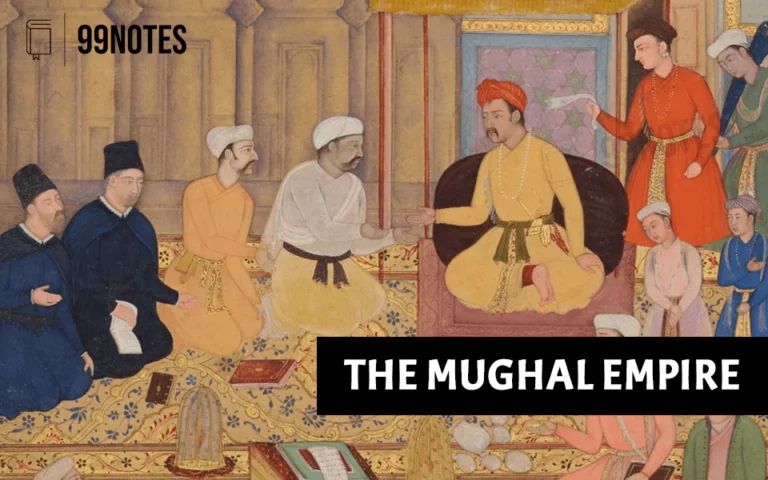Mughal Empire- Complete UPSC Notes
Mughal Empire Babur, a Central Asian ruler descendant of the Turco-Mongol conqueror Timor, founded the Mughal Empire. He laid the foundation of the mighty Mughal Empire, which was consolidated by Akbar, and lasted for about two centuries. The Mughal Empire reached its zenith during Aurangzeb’s rule, after which its decline started, catalysed by its conflict with the…







![Bhakti Movement: Origin, Main Principles, Causes, And Its Effect [Upsc Medieval History Notes] | Updated November 22, 2025 Bhakti Movement: Origin, Main Principles, Causes, And Its Effect [Upsc Medieval History Notes]](https://www.99notes.in/wp-content/uploads/2023/02/the-bhakti-momvement-banner-99notes-upsc-768x480.webp)


